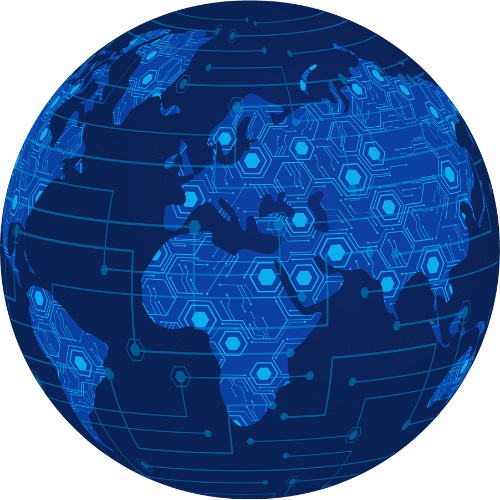The Software as a Service (SaaS) model has gained immense popularity over the past decade, providing businesses with flexible, scalable, and cost-effective solutions. As technology continues to evolve, artificial intelligence (AI) has emerged as a transformative force within the SaaS landscape. By integrating AI capabilities, SaaS providers are not only enhancing their offerings but also redefining how businesses operate.
This integration allows for smarter decision-making, improved efficiency, and a more personalized user experience. AI technologies such as machine learning, natural language processing, and data analytics are being harnessed to create intelligent applications that can learn from user interactions and adapt accordingly. For instance, customer relationship management (CRM) platforms are now equipped with AI-driven insights that help sales teams identify potential leads and optimize their outreach strategies.
This shift towards AI-enhanced SaaS solutions is not merely a trend; it represents a fundamental change in how software is developed and utilized across various industries.
Key Takeaways
- AI is revolutionizing the SaaS industry by transforming the way software is developed, improving user experience, and streamlining processes through automation.
- Generative AI is a game-changer for SaaS development, enabling the creation of new and innovative solutions that were previously not possible.
- AI is significantly impacting user experience in SaaS by personalizing and optimizing interactions, leading to higher customer satisfaction and retention.
- AI-powered automation is streamlining processes in SaaS, increasing efficiency and reducing the need for manual intervention.
- AI is playing a crucial role in predictive analytics for SaaS, enabling companies to make data-driven decisions and anticipate future trends and customer behavior.
Generative AI: A Game-Changer for SaaS Development
Generative AI is at the forefront of innovation in the SaaS sector, offering unprecedented capabilities in software development and content creation. This technology enables systems to generate new content based on existing data, which can significantly reduce the time and resources required for development. For example, generative AI can assist developers in writing code, creating user interfaces, or even generating marketing materials, thereby streamlining the entire development process.
Moreover, generative AI can facilitate rapid prototyping and testing of new features. By simulating user interactions and generating feedback in real-time, developers can iterate on their products more efficiently. This capability not only accelerates the development cycle but also enhances the quality of the final product, as it allows for continuous improvement based on user input.
As a result, SaaS companies that leverage generative AI are better positioned to respond to market demands and deliver innovative solutions that meet the evolving needs of their customers.
The Impact of AI on User Experience in SaaS
User experience (UX) is a critical factor in the success of any SaaS application. With the integration of AI, companies are now able to create more intuitive and engaging experiences for their users. AI-driven personalization allows SaaS platforms to tailor content and features based on individual user preferences and behaviors.
For instance, e-learning platforms can recommend courses based on a learner’s past activities and performance, enhancing engagement and retention. Additionally, AI can improve user experience through advanced analytics and feedback mechanisms. By analyzing user interactions in real-time, SaaS applications can identify pain points and areas for improvement.
This data-driven approach enables companies to make informed decisions about feature enhancements and user interface adjustments. As a result, users benefit from a more seamless experience that not only meets their needs but also anticipates them.
AI-Powered Automation: Streamlining Processes in SaaS
| Metrics | Q1 | Q2 | Q3 | Q4 |
|---|---|---|---|---|
| Time Saved (hours) | 500 | 750 | 900 | 1100 |
| Cost Reduction (%) | 15% | 20% | 25% | 30% |
| Accuracy Improvement (%) | 10% | 12% | 15% | 18% |
Automation has long been a goal for businesses seeking to improve efficiency and reduce operational costs. With the advent of AI, SaaS solutions are now capable of automating complex processes that were previously time-consuming and labor-intensive. For example, AI can automate customer support through chatbots that provide instant responses to common inquiries, freeing up human agents to focus on more complex issues.
Furthermore, AI-powered automation extends beyond customer service to areas such as data entry, reporting, and workflow management. By automating repetitive tasks, organizations can minimize errors and enhance productivity. This not only leads to cost savings but also allows employees to dedicate more time to strategic initiatives that drive business growth.
As automation becomes increasingly sophisticated, the potential for SaaS applications to transform operational workflows will continue to expand.
The Role of AI in Predictive Analytics for SaaS
Predictive analytics is another area where AI is making significant strides within the SaaS industry. By leveraging historical data and machine learning algorithms, SaaS applications can forecast future trends and behaviors with remarkable accuracy. This capability is particularly valuable for businesses looking to make data-driven decisions regarding inventory management, customer retention strategies, and marketing campaigns.
For instance, e-commerce platforms can utilize predictive analytics to anticipate customer purchasing behavior based on past transactions and browsing patterns. This insight enables businesses to optimize their inventory levels and tailor marketing efforts to specific customer segments. As predictive analytics becomes more integrated into SaaS solutions, organizations will be better equipped to navigate uncertainties and capitalize on emerging opportunities.
Harnessing the Power of AI in SaaS Marketing Strategies
Marketing strategies are evolving rapidly as companies recognize the potential of AI to enhance their outreach efforts. In the realm of SaaS, AI can analyze vast amounts of data to identify target audiences, optimize ad placements, and personalize messaging. By understanding customer behavior and preferences through advanced analytics, marketers can create campaigns that resonate more effectively with their audience.
Moreover, AI-driven tools can automate various aspects of marketing, from email campaigns to social media management. For example, machine learning algorithms can segment audiences based on engagement levels and tailor content accordingly. This level of personalization not only improves conversion rates but also fosters stronger relationships between brands and customers.
As SaaS companies continue to embrace AI in their marketing strategies, they will likely see enhanced brand loyalty and increased customer acquisition.
The Future of SaaS: Innovations in AI Integration and Implementation
Looking ahead, the future of SaaS is poised for further innovation as AI technologies continue to advance. Companies are increasingly recognizing the importance of integrating AI into their core offerings to remain competitive in a rapidly changing market. This trend will likely lead to the development of more sophisticated applications that leverage AI for enhanced functionality and user engagement.
As organizations adopt AI-driven solutions, they will also need to address challenges related to data privacy and ethical considerations. Ensuring that AI systems are transparent and accountable will be crucial in building trust with users. Additionally, as AI becomes more prevalent in SaaS applications, ongoing education and training will be essential for both developers and end-users to maximize the benefits of these technologies.
In conclusion, the integration of AI into the SaaS industry is not just a passing trend; it represents a fundamental shift in how software is developed, marketed, and utilized. As businesses continue to harness the power of AI across various domains—from user experience to predictive analytics—the potential for innovation will only grow. The future of SaaS promises exciting advancements that will redefine how organizations operate and engage with their customers.




